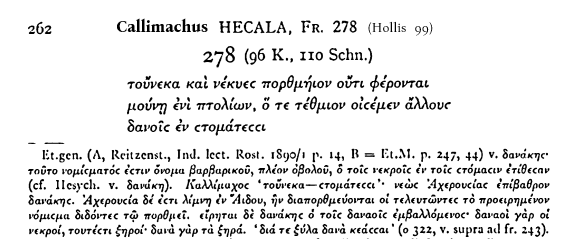
Nikos
@nchlsswft
Fragment 129 of Pindar says the sun shines in Hades after it sets: τοῖσι λάμπει μὲν μένος ἀελίου / τὰν ἐνθάδε νύκτα κάτω, "for those below the might of the sun shines when it is nighttime here." In Heyne's edition for the delightful -ου ligature:
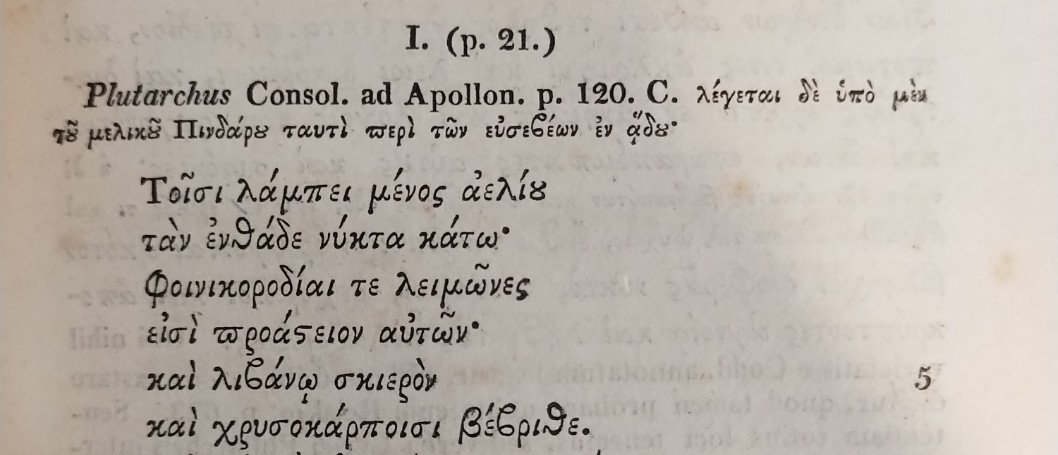
ἔοικα θρηνεῖν ζῶσα πρὸς τύμβον μάτην
Oresteia coming at me with heart stopping line after heart breaking line… The climax of The Libation Bearers is overwhelming. I can’t handle the punches you throw Aeschylus…
A neat parallel semantic development: (1) διατριβή, pastime, waste of time > discussion > study, teaching, lecture > school, a pejorative perhaps reclaimed by Socrates, and (2) σχολή, leisure > discussion > study, lecture > school, apparently secondary and preferred by Aristotle.
The Greek gen. absorbed abl. uses but in turn encouraged a gen. of separation in Latin, e.g. Pl.Rud.247 laborum levare, relieve from troubles, Hor.Carm.3.17.16 operum solvere, release from labors, Aen.10.441 desistere pugnae, stop fighting. Sil.10.84 desinere irae, quit anger.
Still in awe of this Bronze Age sealstone found at Pylos ten years ago. It's only 3.6 cm long (1.42 in.), but just look at the hair, the muscles, the sword, the patterned kilt, and that limp, dead arm.
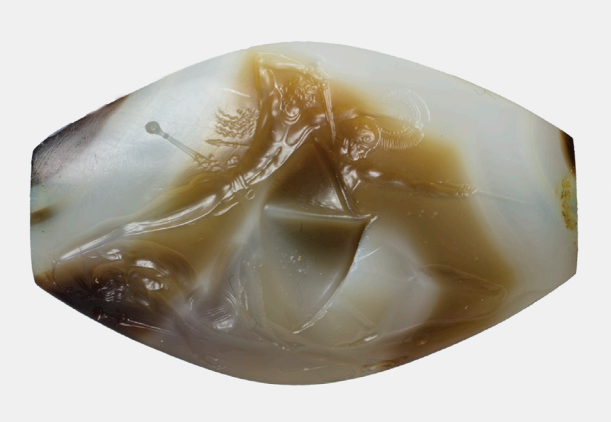
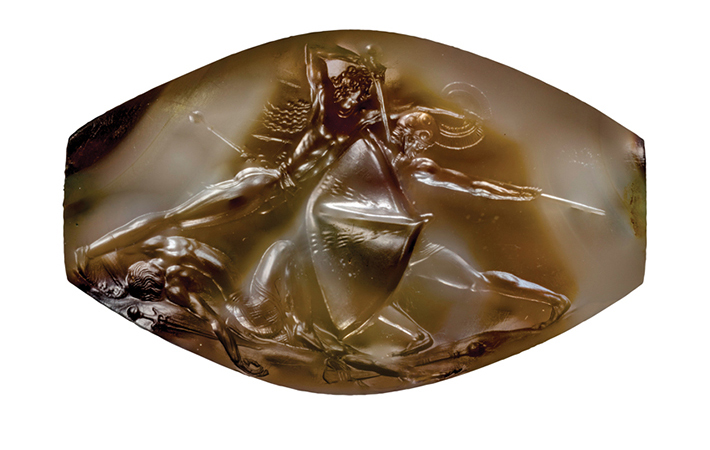
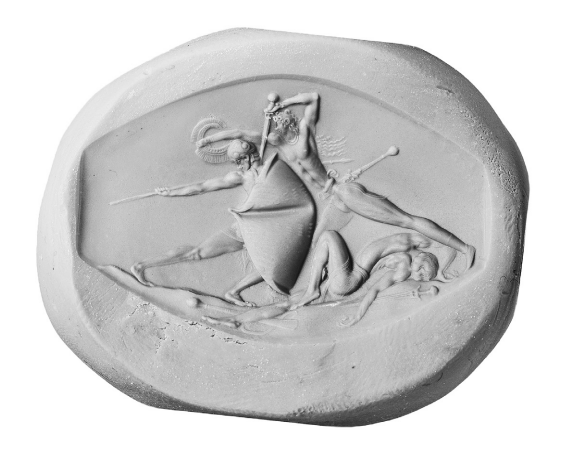
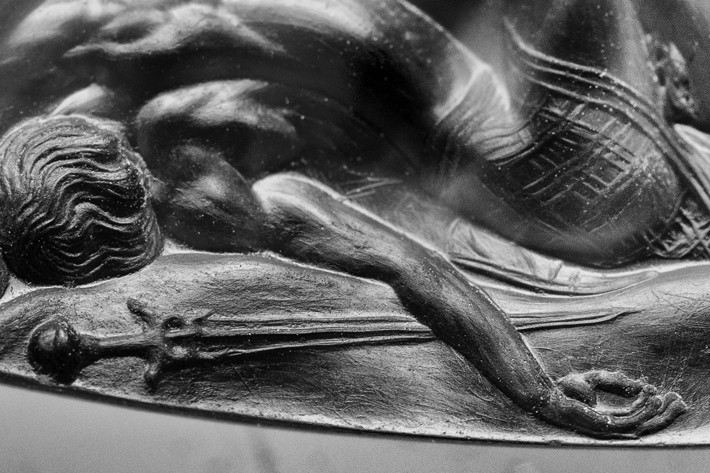
"In exclamations, the nominative characterizes, the vocative addresses, the accusative implies an object of emotion, and the genitive the source or sphere of emotion," Gildersleeve.
If you've also been desperate for exposition of metrical aesthetics, this is a treasure. Winbolt confirms things I'd suspected and points out far more I hadn't considered. Many observations will hold true for Greek as well, and he often discusses it explicitly.
Can do. Have you read Winbolt? archive.org/details/latinh…
"For effective education of both young and old is not admonishing, but demonstrating in the course of one's own life the very things one might say when admonishing others," Plato Laws 729c

"Drinking to get drunk is appropriate only at the festivals of the god who gifted wine" (Plato Laws 775b), a handy example of triple article embedding, which happens only with articles of different forms.

Everyone remarks on the digammas in Bekker's 1858 Homer, but the monogammas amuse me: he clearly chose that peculiar glyph just to visualize the etymology of the word digamma.
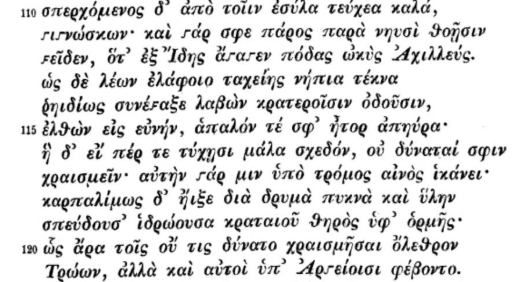
"Troubles more lightly vex a man, and he removes one part of thirty, when he finally confesses his sufferings to a friend or fellow traveler or the deaf winds."
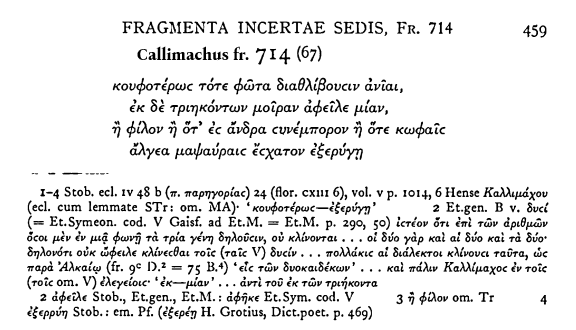
Yet another pocket edition, Winbolt's selections from the Iliad, with English translations, made just before the advent of the Loeb series. I haven't used this one much but will keep in pocket presently and see what happens.

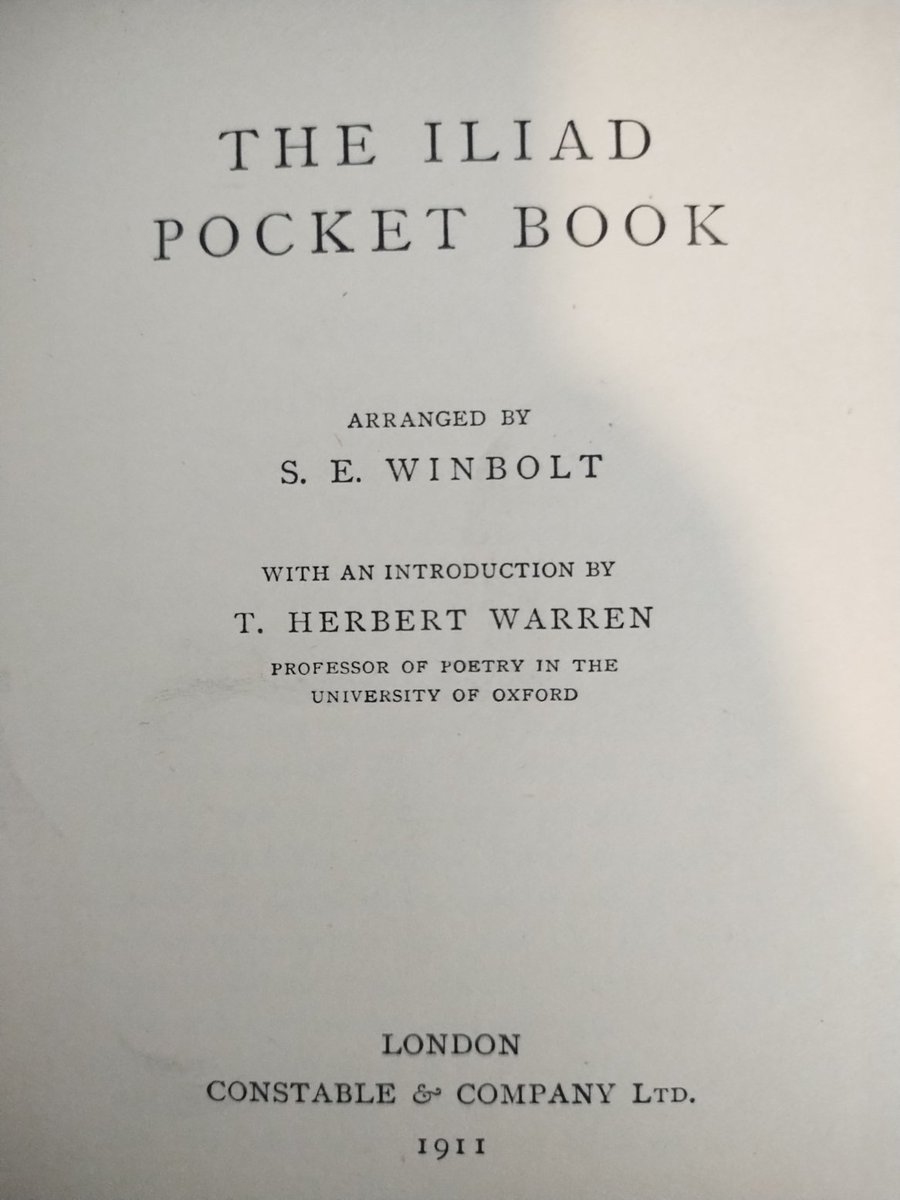
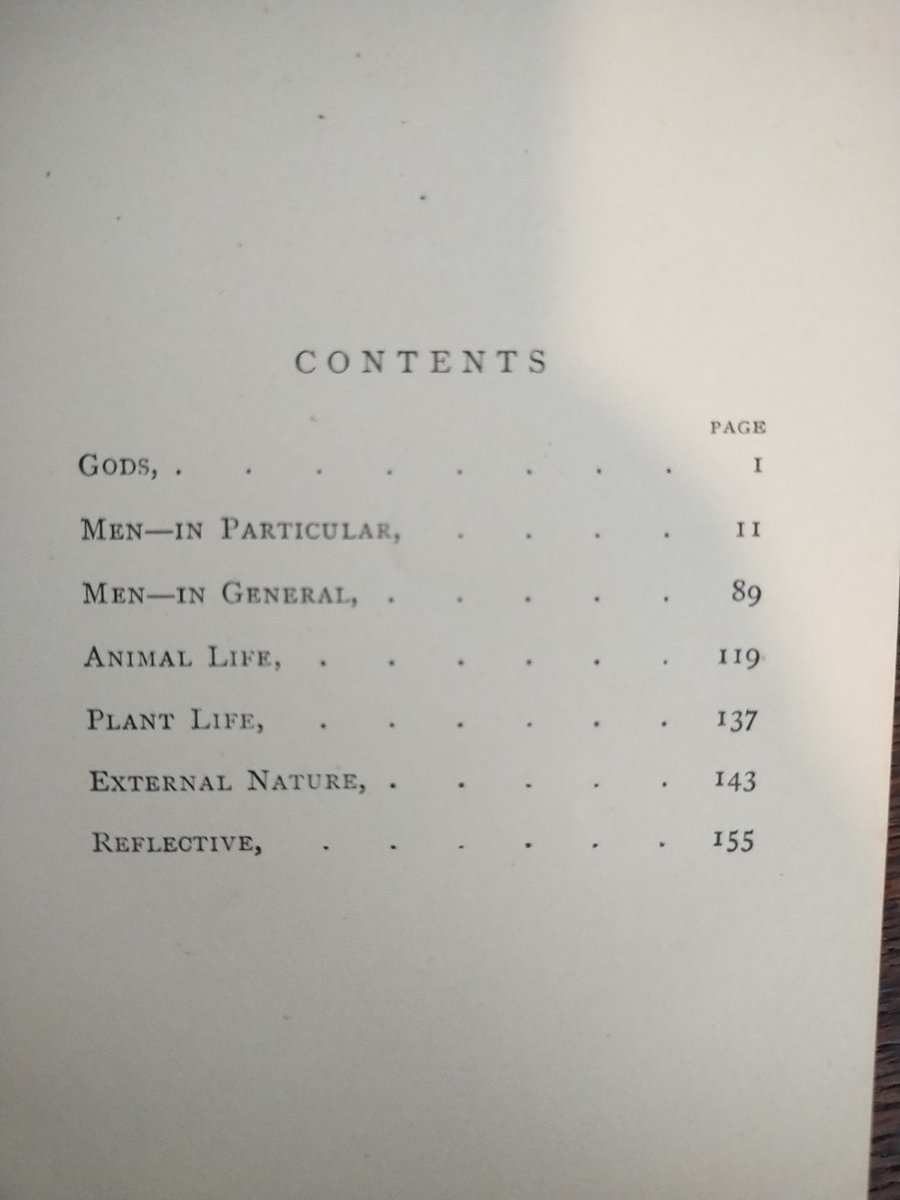
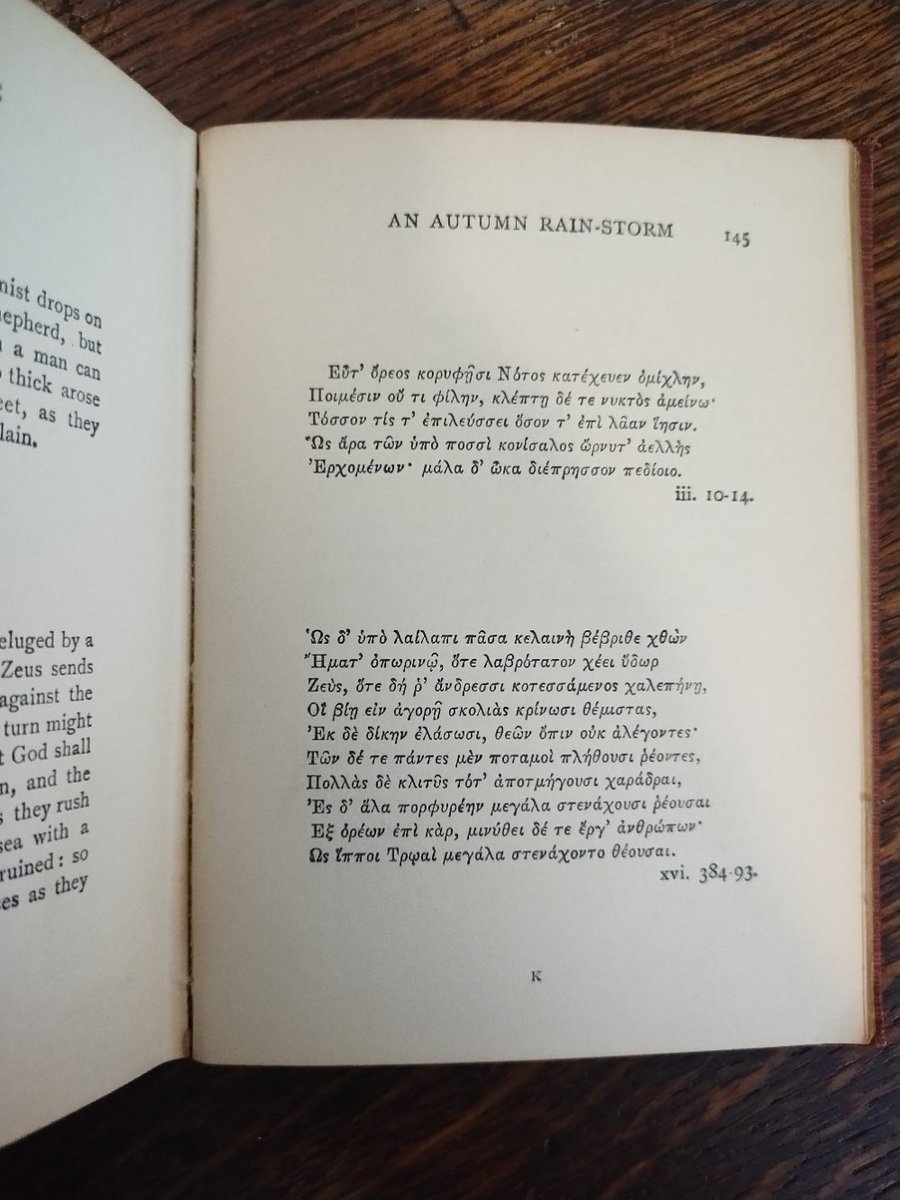
. Iustitia, etsi non prorsus poenas dederit, bis stabit inulta inter defunctos rediens...
"Almost everything Hellenic has been so transfigured by centuries of admiring worship that it is difficult to see the Greeks with unclouded eyes or to know them as they really were." - C.M. Bowra
"If avenging Justice didn't punish you on the spot, she will be twice as vindictive in future, coming for payback among the dead"
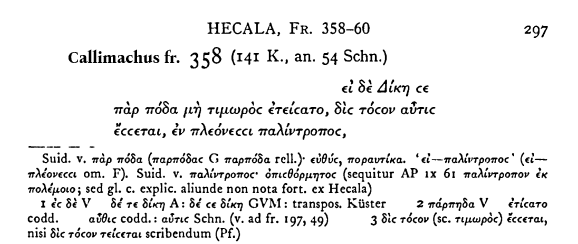
Two semantic borrowings from Egyptian: (1) θάλλος, "branch," acquired the meaning "gift" from the Egyptian homophones mnh, "branch," and mnh.t, "gift," and (2) ὄρος, "mountain," acquired the meanings "desert" and "monastery" from Coptic τοογ, "mountain, desert, monastery."
Still amazed by this detail in Cassius Dio, who claims that Octavian visited the tomb of Alexander the Great in Egypt and desecrated the body (51.16): "And after this he saw Alexander's body, and he even touched it, so that a piece of his nose, they say, was shattered."
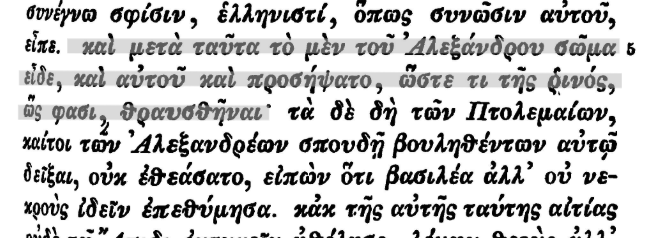
"Therefore the dead in only one city do not pay the death toll which others are mandated to carry in their parched mouths," either Aigialos (Suida) or Hermione, because the trip was short (Strabo C373) or because they told Demeter of Persephone's abduction (Apollodorus 1.5.1).
